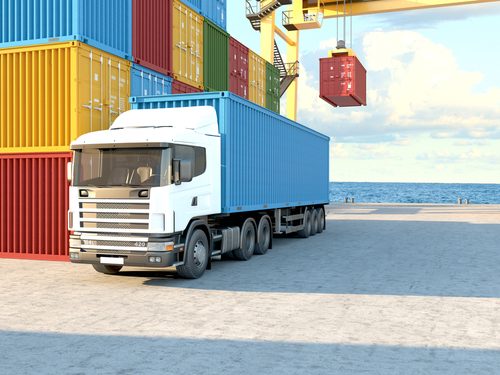May 20, 2016 | Industry Insights
Nation’s Ports in Battle over Truck Driver Classification

Increasingly more employees across all industry sectors are filing lawsuits against their employers claiming they should be classified as employees instead of independent contractors and entitled to back wages, overtime, and other benefits. This is especially more so in the wake of ride-sharing companies like Uber Technologies, which agreed to pay as much as $100 million to drivers in April in a suit over employee status, and FedEx’s $228 million settlement last year with drivers. Now, according to a recent article in the Wall Street Journal, the nation’s busiest ports are emerging as a key battleground in the legal fight over whether truck drivers should be counted as employees or independent contractors.
In fact, according to WSJ, several trucking companies operating at the ports of Long Beach and Los Angeles have filed for bankruptcy protection in recent months, citing mounting costs to settle hundreds of employee-status legal claims. These port-trucking businesses, known as drayage, haul containers from the docks to rail yards and freight depots, facilitating the movement of imported goods for retailers and manufacturers to stores and factories across the country. It’s a $12 billion-a-year business in which hundreds of small operators compete on thin margins. The cost to settle similar claims such as the ones filed against Uber and FedEx can be overwhelming.
Since 2011, there have been 799 complaints against port-trucking companies with the California Labor Commissioner’s Office, alleging drivers were misclassified as independent contractors and denied the wages and benefits afforded to full-time employees. A total of more than $35 million has been awarded to drivers in those cases, according to the Labor Commissioner’s Office, as reported in the WSJ. Moreover, over a dozen class action lawsuits alleging misclassification at the port-trucking companies are pending in California courts. The National Labor Relations Board also recently filed a complaint against a California port-trucking company, which is one of the first to include the allegation that drivers’ misclassification as independent contractors violates the National Labor Relations Act.
Furthermore, Justice for Port Drivers, a campaign supported by the International Brotherhood of Teamsters, is organizing drayage drivers at ports around the country, particularly in Southern California. The organizers are claiming that trucking companies push their costs, such as fuel, insurance, maintenance and lease payments, onto the drivers. They claim they’re not compensated for many of the hours they work, such as the time spent waiting in line to pick up goods.
The litigation that’s taking place, analysts say, raises questions about the future of short-haul trucking at the nation’s ports. “Litigation with drivers and the higher cost of full-time labor could force drayage operators to charge more for their services or it could put them out of business entirely, reducing the overall number of carriers and raising costs for shippers,” stated the WSJ article.
The trucking industry is bracing for the classification fight to spread to other ports. “As most things go in trucking…California leads the way,” said Curtis Whalen of the American Trucking Associations, an industry group. “Having this hanging over your head is obviously not good.”
What’s At Issue?
Employee misclassification became a hot topic as the economy shifted with hundreds of growing businesses turning away from traditional hiring practices and relying increasingly on contract workers. Once again, think Uber, Lyft, and others in today’s sharing economy. As a result, last year the Depart of Labor Department’s Wage and Hour Division sought to clarify the issue issuing guidance that many employers feel broadened the definition of an employee under the Fair Labor Standards Act (FSLA).
In general, businesses should factor in several so-called “economic realities” when determining how to classify a worker, including the company’s degree of control over the person, whether the work is an integral part of the employer’s business, and whether the relationship between the worker and the employer is permanent or indefinite. These factors are supposed to be used collectively to determine whether the worker is economically dependent on the employer, and therefore an employee, or truly in business for himself or herself as an independent contractor.
In order to minimize the risk of potential litigation involving wage and hour disputes, all transportation companies and global logistic services providers should follow these best practices to help ensure that drivers are properly classified:
- Abide by salary rules
- Ensure proper payroll record-keeping
- Implement clear policies and procedures for overtime and other issues
- Train managers and human resources personnel to not only understand the rules but also company policy on how to deal with issues such as unauthorized overtime, breaks, meal times, travel time, etc.
- Educate employees on written policies and procedures to help avoid mistakes that could lead to bigger issues down the road
- Conduct annual classification reviews, including performing an annual review of employees’ job descriptions and actual duties
In addition to following these best practices, it’s important to have a robust Employment Practices Liability (EPLI) insurance program in place in the event of litigation. Roanoke Trade provides a total insurance solution for the transportation and logistics services industries, including EPLI coverage. To discuss this and other insurance solutions, please contact one of our professionals at 1-800-ROANOKE (800-762-6653).





